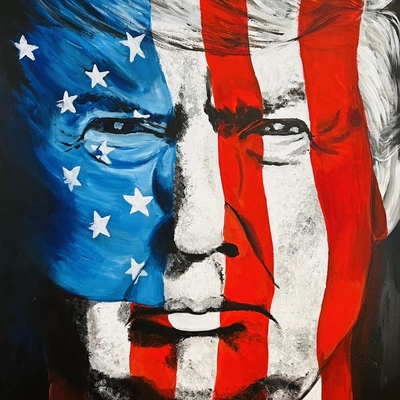Stay informed on the latest Truth Social posts from Donald Trump (@realDonaldTrump) without the doomscrolling. Consider it a public service for your mental health. (Why?)
- The United States has a significant and persistent trade deficit with Bangladesh.
- Bangladesh's tariff, non-tariff policies, and trade barriers are responsible for these deficits.
- The trade relationship between the U.S. and Bangladesh has not been reciprocal.
- Effective August 1, 2025, the U.S. will impose a 35% tariff on all Bangladeshi products.
- Goods transshipped to evade the U.S. tariff will be subject to the same or higher tariff.
- The 35% tariff is considered less than what is needed to fully eliminate the trade deficit disparity.
- Bangladeshi companies can avoid these tariffs by manufacturing products within the United States.
- The U.S. will expedite approvals for Bangladeshi companies choosing to manufacture in the U.S.
- If Bangladesh raises its own tariffs, the U.S. will add that increase onto its existing 35% tariff.
- The unsustainable trade deficits are a major threat to the U.S. economy and national security.
The post outlines a specific trade policy targeting Bangladesh with a 35% tariff. This could impact U.S. companies that heavily rely on imports from Bangladesh, particularly in sectors such as apparel and textiles. While Bangladesh's overall economic size may not trigger a systemic S&P 500 impact, specific companies or supply chains could face increased costs, potentially affecting their earnings or stock prices. The policy also signals a protectionist stance which, if broadened to other countries, could create wider market uncertainty and impact trade-sensitive sectors.
The post details a unilateral imposition of significant tariffs by the United States on Bangladesh, justified by claims of "unsustainable Trade Deficits" and a "major threat to our Economy and, indeed, our National Security!". This aggressive economic measure, coupled with a direct warning of retaliatory tariff increases if Bangladesh responds with its own tariffs, indicates a severe deterioration of trade relations. While not directly threatening military conflict, framing economic issues as national security threats elevates diplomatic tensions and could lead to economic warfare or a broader re-alignment of international relations, increasing the risk of friction between the involved nations and potentially influencing regional dynamics.
- Commodities: Gold (XAU) might see a minor increase if this signals broader trade tensions, but a direct major impact is unlikely for a single country's tariff. Oil (WTI) is not directly affected unless the dispute escalates significantly impacting global trade volumes. Short-Term Watchlist: XAU/USD for broader risk aversion signals. Medium-Term Focus: Inflation trends if this protectionism spreads.
- Currencies (Forex): The US Dollar Index (DXY) might strengthen marginally if the policy is perceived as economically beneficial for the US, or weaken slightly if it causes global trade uncertainty. USD/BDT (Bangladesh Taka) would likely experience immediate volatility and potential depreciation due to reduced exports. Short-Term Watchlist: DXY for risk sentiment, USD/BDT. Medium-Term Focus: Broader trade policy announcements from the US.
- Global Equities: S&P 500 could see minor, sector-specific impacts (e.g., retail, apparel). European (STOXX 600) and Asian equities (Nikkei 225, Hang Seng) could be indirectly affected if supply chains or re-export channels involve Bangladesh. Overall systemic impact on global equities is low unless the policy is a precedent for wider actions. Short-Term Watchlist: US retail/apparel stocks, VIX for general risk. Medium-Term Focus: Earnings revisions for exposed companies.
- Fixed Income (Bonds): US 10Y and 2Y yields might react slightly if this impacts inflation expectations or safe-haven demand. If it signals increased US protectionism, it could potentially lead to higher inflation, pushing yields up. However, for a single country's tariff, a significant bond market reaction is unlikely. Short-Term Watchlist: UST 10Y yield levels. Medium-Term Focus: Fed policy given potential inflation from tariffs.
- Volatility / Derivatives: VIX might see a slight uptick if the news contributes to overall market uncertainty about future trade policies, but a major spike is improbable due to the specificity of the tariff. Short-Term Watchlist: VIX levels. Medium-Term Focus: Macro policy uncertainty.
- Crypto / Digital Assets: Bitcoin (BTC) might behave as a risk-on asset if the market remains stable or as a macro hedge if broader trade wars develop. Direct impact from this specific tariff is minimal. Short-Term Watchlist: BTC/USD correlation with tech stocks. Medium-Term Focus: Regulatory news on trade or macro liquidity backdrop.
- Cross-Asset Correlations and Systemic Risk: Unlikely to cause a breakdown in normal correlations or systemic liquidity stress, given the localized nature of the policy. Short-Term Watchlist: N/A. Medium-Term Focus: Broader trade policy implications.
- Retail Sentiment / Market Psychology: Unlikely to trigger significant retail speculation in broader markets. May cause some discussion among investors with exposure to Bangladesh-related industries. Short-Term Watchlist: N/A. Medium-Term Focus: Social media influence on trade policy discussions.

